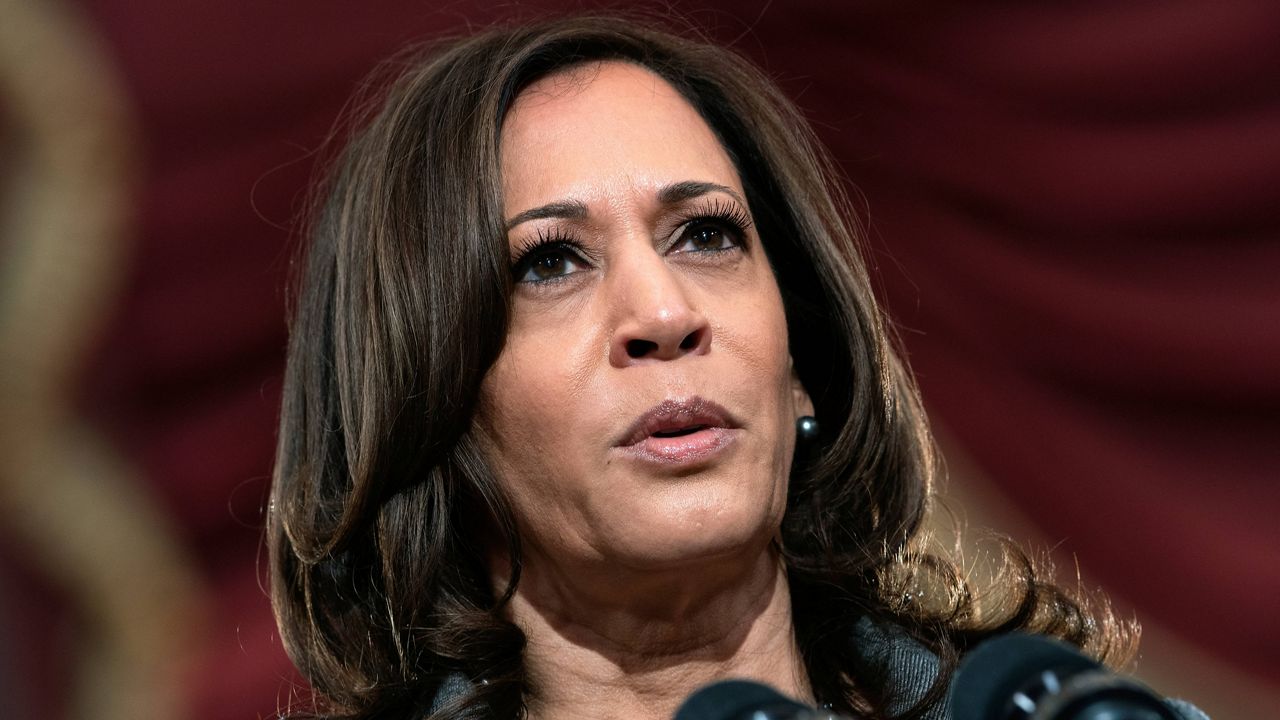Vice President Kamala Harris on Friday held a virtual meeting with leaders from 15 Caribbean nations to discuss a variety of topics ranging from “economic recovery following the COVID-19 pandemic, the climate crisis, and security,” according to a White House release.
It was Harris’ first public, though virtual, event since the vice president tested positive for COVID-19 on Tuesday. At the time, administration officials said Harris would return to the White House upon testing negative for the virus, and would work from her own residence in the meantime.
“As a neighbor in the Western Hemisphere, the United States shares a common bond with the nations of the Caribbean,” Harris said to those assembled on Friday. “As neighbors, we know our partnership is key to our shared prosperity and security. We also know that we have common challenges, and that is why I've convened this meeting to strengthen our partnership and chart a path forward together.”
Of particular concern to many Caribbean nations is the increasing threat of climate change, Harris acknowledged on Friday. While the various island nations do not contribute much to global greenhouse gas output relative to larger nations, the resulting rising sea levels, changes in rainfall patterns and increasing temperatures will impact millions of people living on coastlines in the years to come.
As of 2020, over 27% of the population across Latin America and the Caribbean lived in coastal areas, according to the United Nations.
Harris and the Caribbean leaders were set to discuss “the urgent issue for our entire planet, the issue of the climate crisis” in a closed-door meeting, the vice president said, adding: “In particular, we will discuss ways to strengthen your climate resilience and to accelerate the transition to a clean energy economy.”
The vice president also said the group would touch on economic recovery in light of the COVID-19 pandemic, saying: “We will take on these challenges together.”
Some of the leaders at Friday's meeting will reconvene in June in Los Angeles for the Summit of the Americas.
The Biden administration in January announced Los Angeles would host the summit of leaders from Latin America and the Caribbean that is a key part of its outreach to a region increasingly being courted by U.S. adversaries such as Russia and China.
The Summit of the Americas, to take place the week of June 6, will focus on defending democracy and human rights in the Western Hemisphere as well as addressing irregular migration, climate change and efforts to ensure equitable growth as the region emerges from the COVID-19 pandemic, a senior congressional aide briefed by the State Department told The Associated Press.
It’s the first time the U.S. is hosting the key regional gathering since 1994, when President Bill Clinton hosted regional leaders in Miami to push for a free trade agreement stretching from Alaska to Tierra del Fuego.
“The U.S. is holding the Summit at the edge of a global pandemic, with authoritarianism on the rise and waning influence in the hemisphere,” said Jennie Lincoln, a senior adviser at the Atlanta-based Carter Center focusing on peace initiatives in Latin America and the Caribbean. “What incentives will the Biden Administration offer and what will it ask in return in this new competitive environment?”
It’s not clear who Los Angeles beat out. But cities including Miami, Houston and New Orleans were also rumored to have been considering a bid.
In the end, Los Angeles — a Democratic stronghold where Vice President Kamala Harris has deep roots — was considered a safe choice, one that reflects the administration’s focus on addressing the drivers of migration from Central America and Mexico. Many migrants fleeing economic hardship and gang violence in the region have resettled in Los Angeles.



